In 2023, significant changes are happening in the UK’s intellectual property scene. These changes are largely due to new technologies. A big topic now is AI-generated content and who owns it. This issue brings up lots of tricky legal and moral questions. The UK is finding a way to follow EU laws while also looking out for its interests, mainly in how trademarks and patents work. The use of blockchain has started to improve the management of intellectual property. It helps make ownership of things like copyrights and patents clearer and safer1.
Protecting intellectual property from counterfeits and online theft is a problem worldwide. It’s clear that strong IP rules are needed in today’s digital world. The “metaverse” changes how we see things like trademarks and copyrights. There’s a big push for “green IPs” promoting eco-friendly innovation. This move affects how companies in all fields think about their IP strategies2. Across industries like pharma and tech, there’s a big push to make handling innovation and IP smoother. It’s now seen as critical for new and small companies to secure their IP rights as they start, not as a later choice.
Dealing with GDPR rules has also become linked with managing IP issues. This makes privacy key in how we handle intellectual property. In the UK, IP lawsuits show that problems in this area are always changing. This forces companies to be ready to update how they handle and protect their IP1
Key Takeaways
- Significant transformations in the UK’s IP landscape driven by emerging technologies.
- AI-generated content presents intricate legal and ethical ownership challenges.
- Blockchain technology offers a secure method for IP management1.
- Green IPs gain traction amidst rising urgency for sustainable solutions2.
- Early IP planning is essential for startups and SMEs to secure competitive advantages.
The Role of Emerging Technologies in Intellectual Property
Emerging technologies are changing how we handle intellectual property (IP). They give us new ways to protect and manage IP rights better. Gadgets like AI, blockchain, and the Internet of Things lead this change. They are transforming IP management.
Artificial Intelligence (AI) and IP
AI has made us rethink the legal and ethical sides of IP. It challenges our thinking about who owns what in this new tech era. AI isn’t just about creating content. It also helps predict trends and map out future technologies.
Blockchain for IP Management
Blockchain tech is great for keeping IP assets safe. Its unchangeable record ensures trust and safety. This makes it harder for pirates to copy or fake stuff. By using blockchain, companies can make sure their IP is well looked after. This tech offers a safe way to deal with IP stuff.
Internet of Things (IoT) and Patent Filings
IoT devices are becoming more common every day. Soon, there will be over 50 million of them worldwide. Big names like Siemens and GE are making tons of new patents. With so much new tech coming, it’s vital to protect these inventions. The number of IoT patents shows how much this field is growing.
AI, blockchain, and IoT are not just changing IP management. They are also helping the world’s economy grow. In China, tech-heavy industries made a big part of the economy in 20213. And in the US, the IP sector added a lot to the economy too3. These facts show how crucial new tech is for handling IP rights well. They highlight the need to use these technologies in IP management.
Impact of Brexit on UK Intellectual Property Rights
Brexit has greatly affected UK intellectual property rights. It led to a big change in how trademarks, patents, and design rights are handled in the UK without the European Union. From January 1, 20214, new rules at the UKIPO came in due to Brexit.
This included needing a UK IP Address for Service on January 1, 20244. Companies need to stay on top of these changes. They must follow both EU and UK laws to protect their interests.
Also, after Brexit, all new UKIPO cases need an address for service in the UK, Gibraltar, or Channel Islands4. This time of change offers chances to improve strategies and lower risks. The Chartered Institute of Trade Mark Attorneys warned about extra costs and delays4. They pointed to issues with reps in the UK IP system4.
The Brexit IP effect reaches the priorities for enforcing IP change. IP protection is now a global focus. UK companies must update their plans to safeguard their IP in the digital world5. Obeying data privacy laws like GDPR is key for managing UK IP safely5. Working together on IP becoming more common, especially in sectors like pharma and tech5.
Brexit also makes the IP sector look at new ways to set fees. Companies like Novagraaf think there’ll be less focus on hourly rates4. This shift shows how firms are adjusting to the post-Brexit IP scene. Planning early for patents and trademarks is key for small businesses and startups5. It gives them a head start in the UK’s changing innovation sector.
A complete and active strategy is needed to deal with post-Brexit IP rules. Companies must make smart moves to gain from the new situation and lower risks.
Key Intellectual Property Landscape Trends in 2023
The intellectual property scene in 2023 will see big changes, showing how quickly technology moves forward. We will notice more patents in robotics, a big focus on going green, and the increasing importance of trademark laws in the metaverse.
Increased Patent Filings in Robotics
Patents in robotics are growing fast. This is thanks to new tech in farming, healthcare, and making things. The world robotics market will jump from $641 million in 2018 to $6.40 billion by 20252. Just the pharmacy robot sector could hit $109.25 billion2. This means companies really need to watch their patents in this changing sector.

Sustainability and Green Innovations
With climate change a significant issue, green is getting more attention in IP. Renewables are set to grow by 85.75% and be worth $160.23 billion by 20252. In 2024, about a third of the world’s power might come from green sources, primarily solar power2. Companies are working hard to get green patents and trademarks to show they’re helping the planet.
Metaverse and Virtual Trademark Protection
The metaverse is a new world for brands. Making sure your brand is safe there is now key6. Companies must be smart about protecting their digital assets. This might mean new strategies and more checks on patents to keep up in this changing place.
| Trend | Market Value | Growth Rate |
|---|---|---|
| Robotics | $6.40 billion by 2025 | N/A |
| Pharmaceutical Robotics | $109.25 billion | N/A |
| Renewable Energy | $160.23 billion by 2025 | 85.75% |
IP Strategies for Startups and SMEs
Startups and SMEs need to plan their intellectual property well from the beginning to succeed over time. Early planning helps protect their unique ideas, giving them an edge in a competitive market. Without a clear plan, they risk losing out and scaring off potential investors7.
Managing IP for SMEs means more than just protecting ideas. It’s about turning these ideas into valuable assets. This move can boost a company’s worth, making it more attractive for sale. The UK encourages this by stressing the early registration of patents and trademarks7.
Investors like to see a robust IP strategy as part of a business plan. It shows the company is serious about its future and understands the risks. A good IP plan is critical to getting the investment needed for growth8.
For startups and SMEs to succeed, they must consider IP from the start. They should weave IP planning into their research and development plans. This approach can protect them from copycats and create new money-making methods. It’s also vital to consider the right time to roll out their IP plans, especially if they want to grow globally7. Checking each new country can avoid legal tangles7.
Below is a table showing the benefits of SMEs registering their intellectual property rights (IPRs):
| Benefit | Percentage |
|---|---|
| Positive Impact | 93% |
| Improved Reputation | 60% |
| Better IP Protection | 58% |
| Improved Long-term Prospects | 48% |
Conclusion
In 2023, the world of intellectual property was on the move. It was changing fast because of new ideas and the need for strong strategies. Courts in China faced an incredible 544,126 IP cases, showing how big the need for legal protection is9. The fact that 544,112 cases were resolved highlights a 3.41% growth in the efficiency of solving these disputes quickly and well9. This shows that, in the coming years, smart and effective IP handling will be more critical than ever before.
New techs like AI and biotechnology are changing the game in IP law. These changes mean new areas need better IP protection and maybe more court time10. For example, there’s a growing demand for legal pros who know their way around cryptocurrency law. This shows that digital money is becoming a more significant part of legal systems10. With technology and law teaming up like this, managing IP well is crucial, especially in Europe after Brexit.
In China, civil cases related to IP were up by 5.4% compared to the year before, reaching 462,176 cases9. Among these cases, patent cases jumped by 14.73%. This increase tells us that patents on new tech are essential in today’s IP world9. It’s part of a broader story showing how vital IP is for businesses in all fields10. Small businesses and new startups can get ahead by focusing on IP, using their inventions to beat the competition.
Also, criminal cases linked to IP jumped by 37.46%. There were more trademark and copyright violation cases, pointing to the tough job of enforcing IP rights9. We can see that new technology, global arguments, and legal changes will keep shaking up the IP world. To succeed, companies must stay quick and up-to-date, ensuring their IP plans match this new world of IP challenges and opportunities.
Source Links
- https://ghbintellect.com/emerging-trends-in-intellectual-property/
- https://www.patsnap.com/resources/blog/2023-ip-trends/
- https://www.morganlewis.com/pubs/2024/04/intellectual-property-spurs-innovation-toward-sustainable-development-on-world-ip-day
- https://www.novagraaf.com/en/insights/embracing-changes-ip-landscape-2024
- https://theintellectualpropertyworks.co.uk/10-things-weve-learned-in-the-ip-industry-in-2023
- https://theintellectualpropertyworks.co.uk/10-things-weve-learned-in-the-ip-industry-in-2023/
- https://www.wipo.int/wipo_magazine/en/2021/02/article_0006.html
- https://abounaja.com/blogs/ip-strategy-for-market-leadership
- https://www.pkhip.com/insights/analyzing-chinas-intellectual-property-landscape-in-2023-a-closer-look-at-legal-trends
- https://medium.com/@thomashudsonth0229555/the-future-of-ip-law-trends-and-predictions-a6dcbe5010e0
